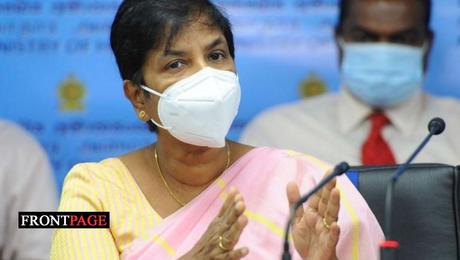 The month of October marks a day dedicated to rural women. It is appropriate to consider how best to adopt an inclusive approach to engage rural women to help them recover from the negative impact of COVID, said State Minister of COVID 19 Control, Primary Healthcare and Epidemics and Chairperson of the Women’s Caucus in the Ninth Parliament of Sri Lanka Dr. Sudarshini Fernandopulle.
The month of October marks a day dedicated to rural women. It is appropriate to consider how best to adopt an inclusive approach to engage rural women to help them recover from the negative impact of COVID, said State Minister of COVID 19 Control, Primary Healthcare and Epidemics and Chairperson of the Women’s Caucus in the Ninth Parliament of Sri Lanka Dr. Sudarshini Fernandopulle.
She said above making a statement on behalf of the Parliament Women’s Caucus on the occasion marking International Day for Rural Women 2021.
“We will therefore make all efforts to prioritize our agenda and help them recover and rebuild through the new normal”, pledges Chairperson of the Women’s Caucus’.
Excerpts from her statement as follows: “Rural women work in the agriculture sector. Around 25.5% of the population in Sri Lanka engage in agriculture. More than 81 per cent of Sri Lanka’s population lives in rural areas; four fifths of the country’s poor people are dependent on the rural sector. Women comprise at least 50 per cent of this demography. The disruption of supply chains in COVID, and the impact of climate change, have led to many hardships for them – both at work and in their homes”.
“These rural women invariably take the brunt of such a financial downturn. It has a spin off effect on household income. Women are socialized and expected therefore to balance the home budget to feed and provide basic needs for their children. Family health is also placed in their hands as the care-giver. Access to markets, given the digital divide that already existed before COVID, is influencing mobility and access to information even more now. This makes it more difficult to continue their ‘businesses’ such as small-scale efforts like home gardening, and support to livelihoods that have hitherto supplemented household income. They have also felt their access to health including reproductive health service compromised in lockdown.
Rural women who live in proximity to water bodies play multiple roles in these sectors, contributing to household food security, economic development and national food security often as part of the value chain of small, medium or larger scale enterprises. Apart from all this, they also need to survive domestic violence with little referrals for help, especially given the COVID context. Hence, we need to design good social support programmes to strengthen robust development that lend to uplifting their living standards.
“Rural women have entered politics too. This due to a 25% quota afforded via legislation which is salutary. We need such affirmative action to position them better. It is also reported that a majority of rural women with little formal education and exposure to decision making in public life, entered the local government political structure but enjoy little voice. However, many are quick to criticize them on the basis that they have not delivered – perhaps due to the lack of experience, the bullying and violence suffered at the hands of their male counterparts, or for the lack of resources allocated for their focused areas of work. This has not helped realize their full potential in the job. These issues that compromise their performance and decision-making efforts need to be addressed in order to maintain their presence in politics. We need to give them a hand to improve their positioning and take their role as politician to a higher level of performing. It is the best way to encourage them to seek nominations, claim their rights as equal participants in the political arena and move ahead during and beyond the election cycle to being strategic decision-makers, contributing to the development and governance of this country”.
